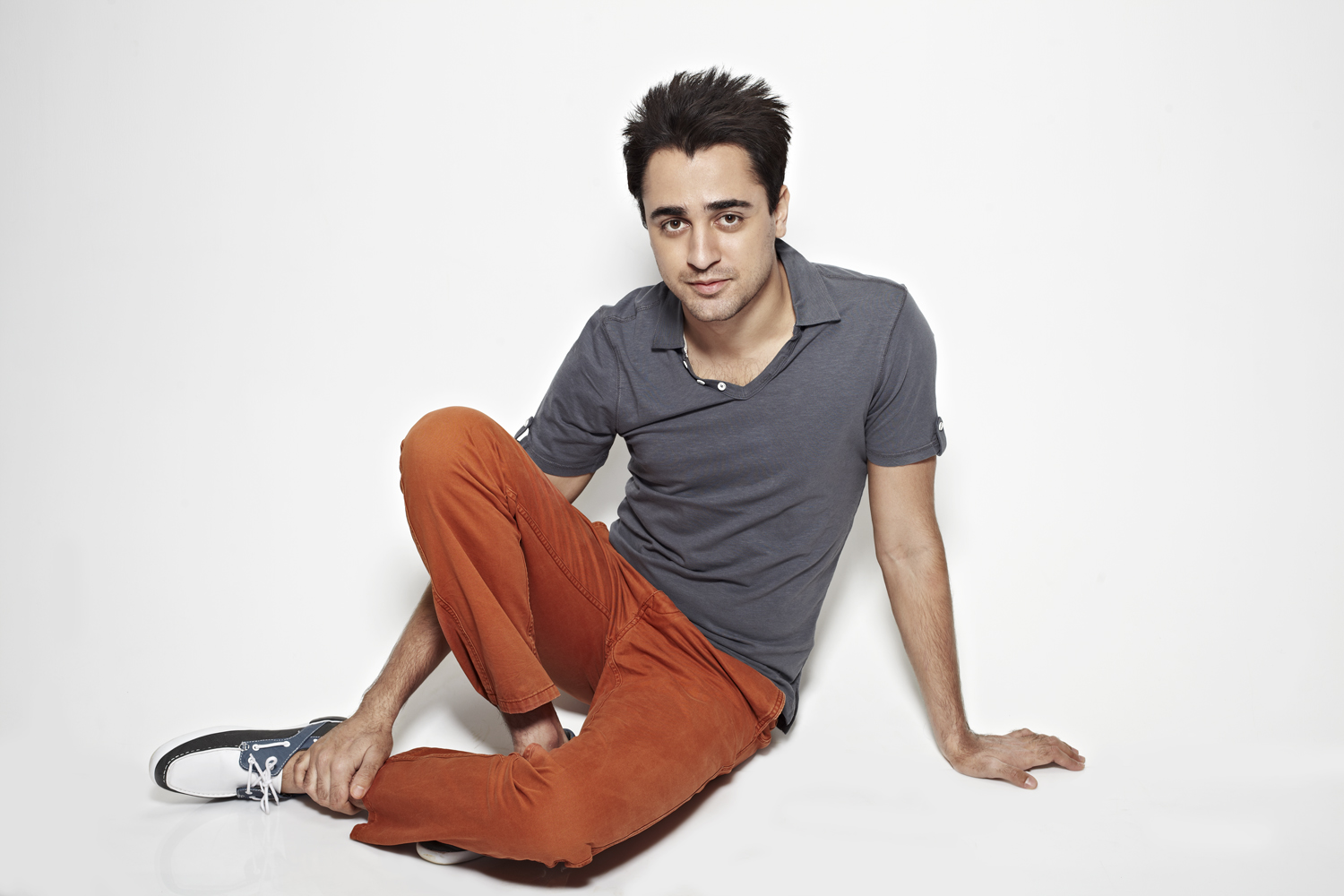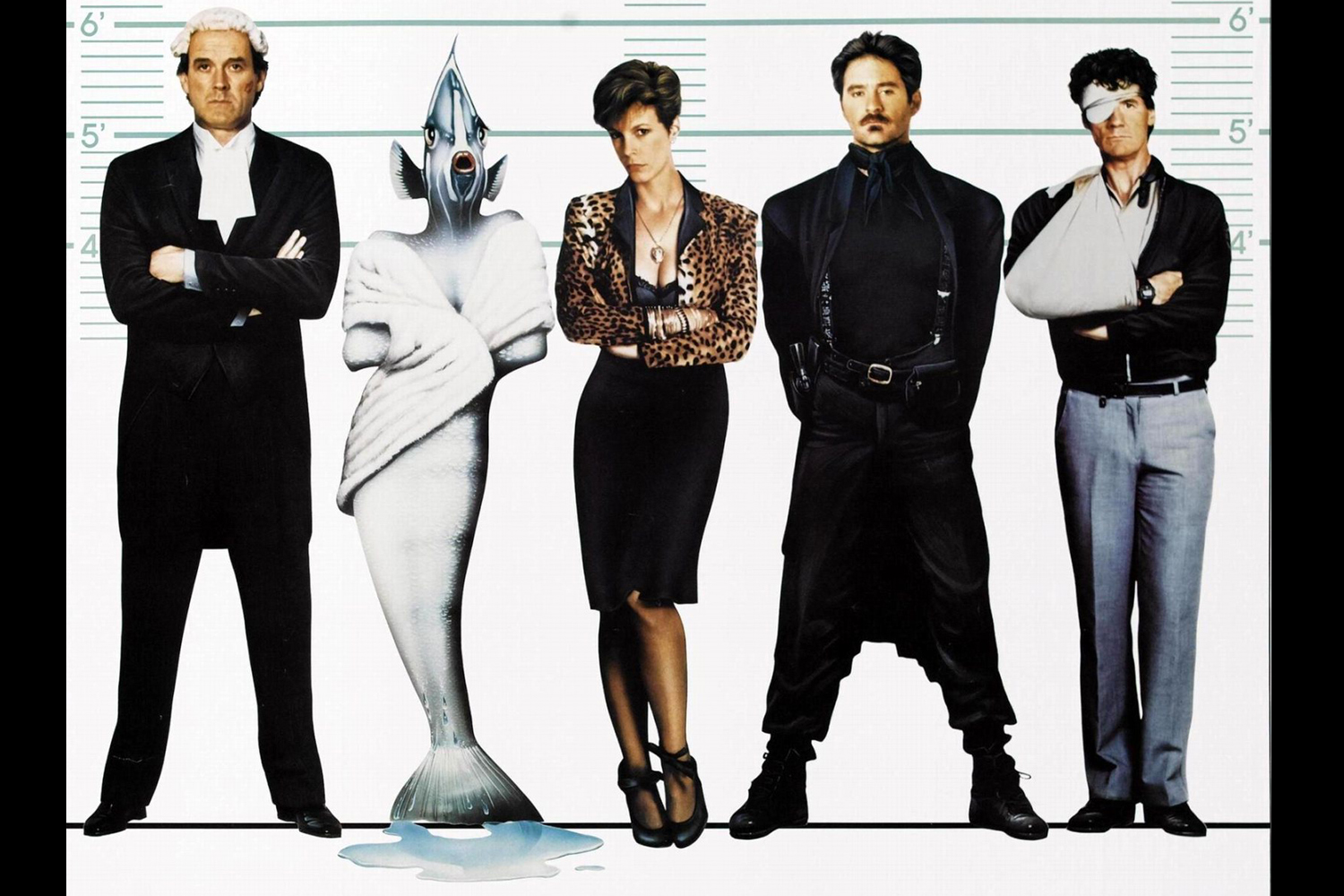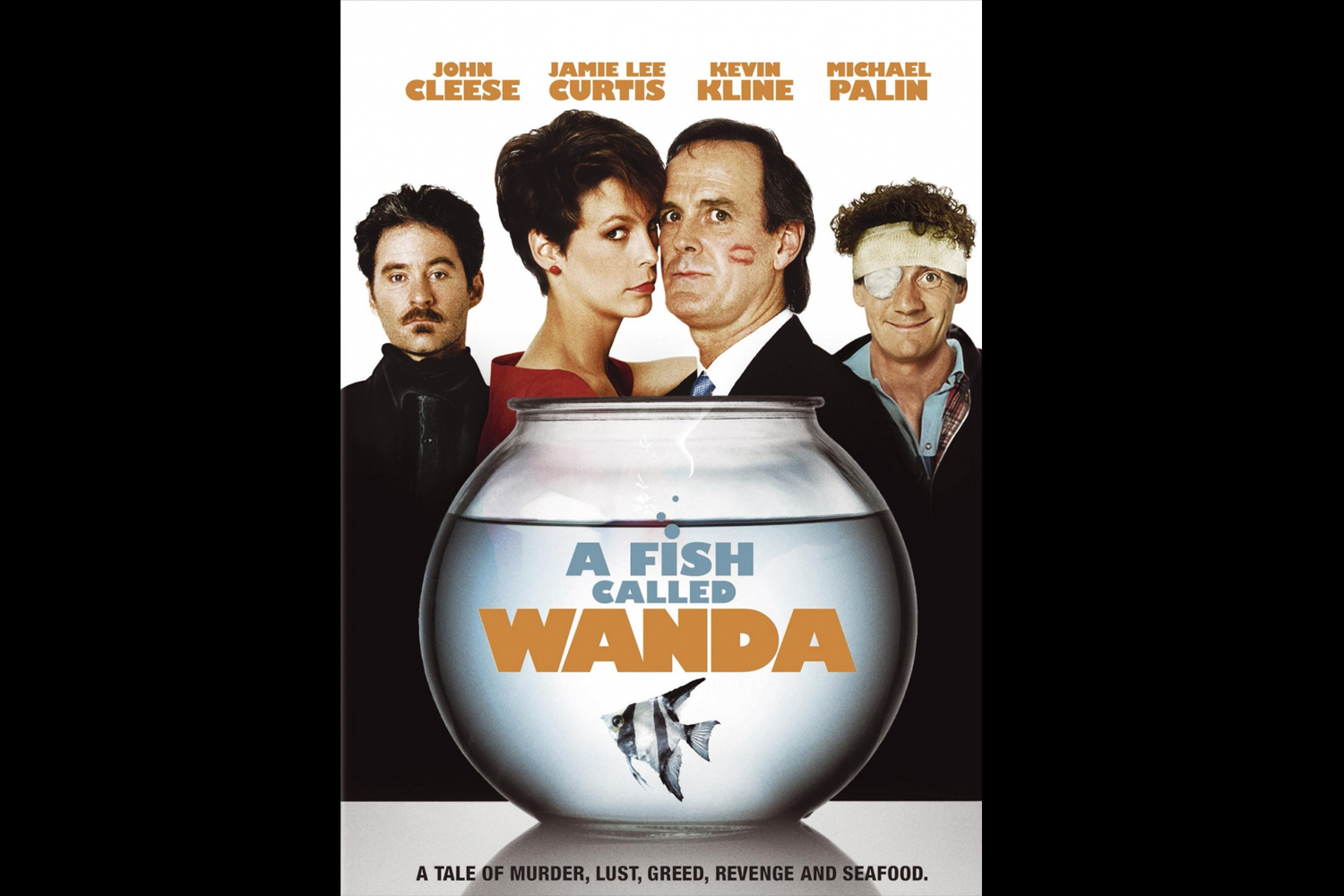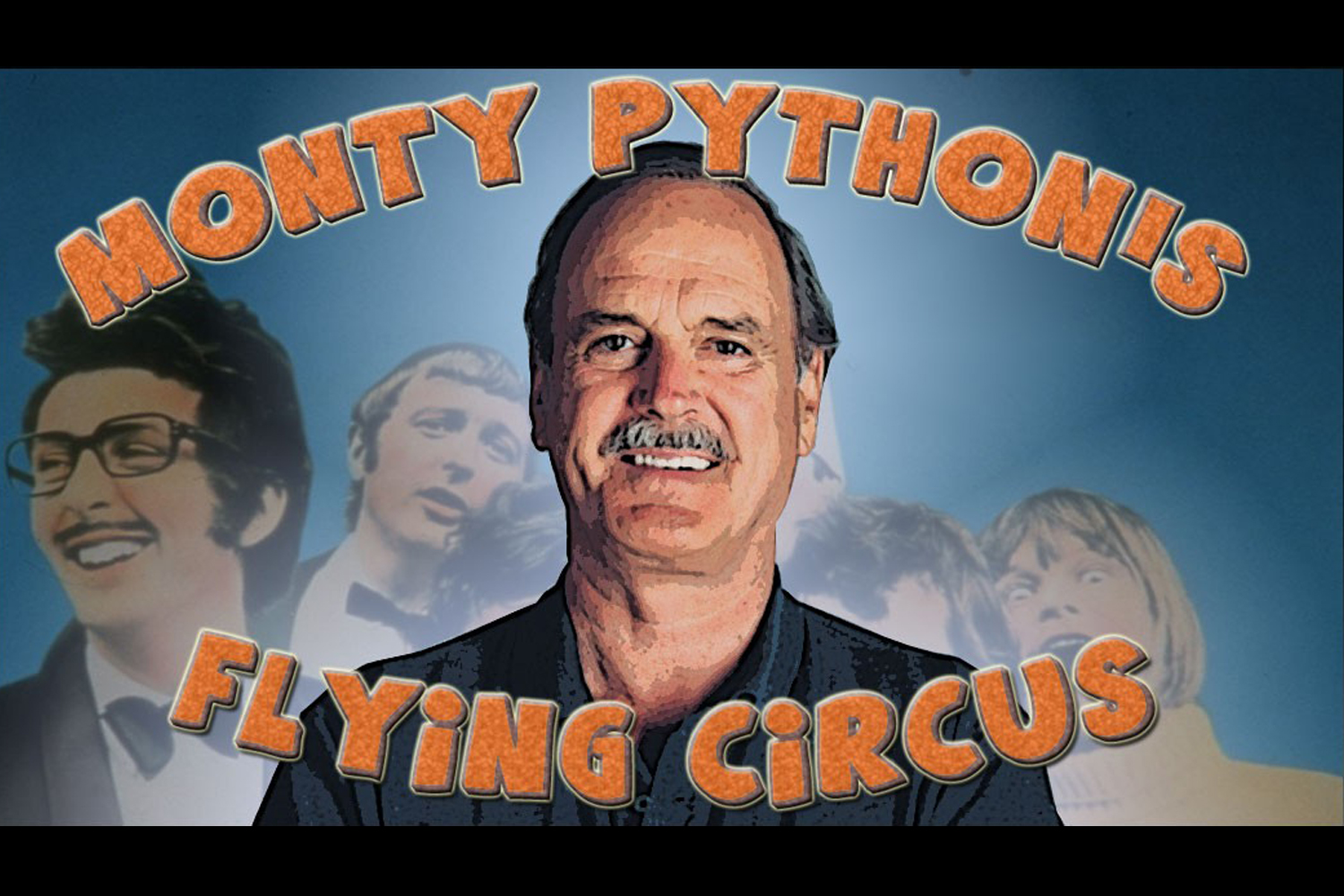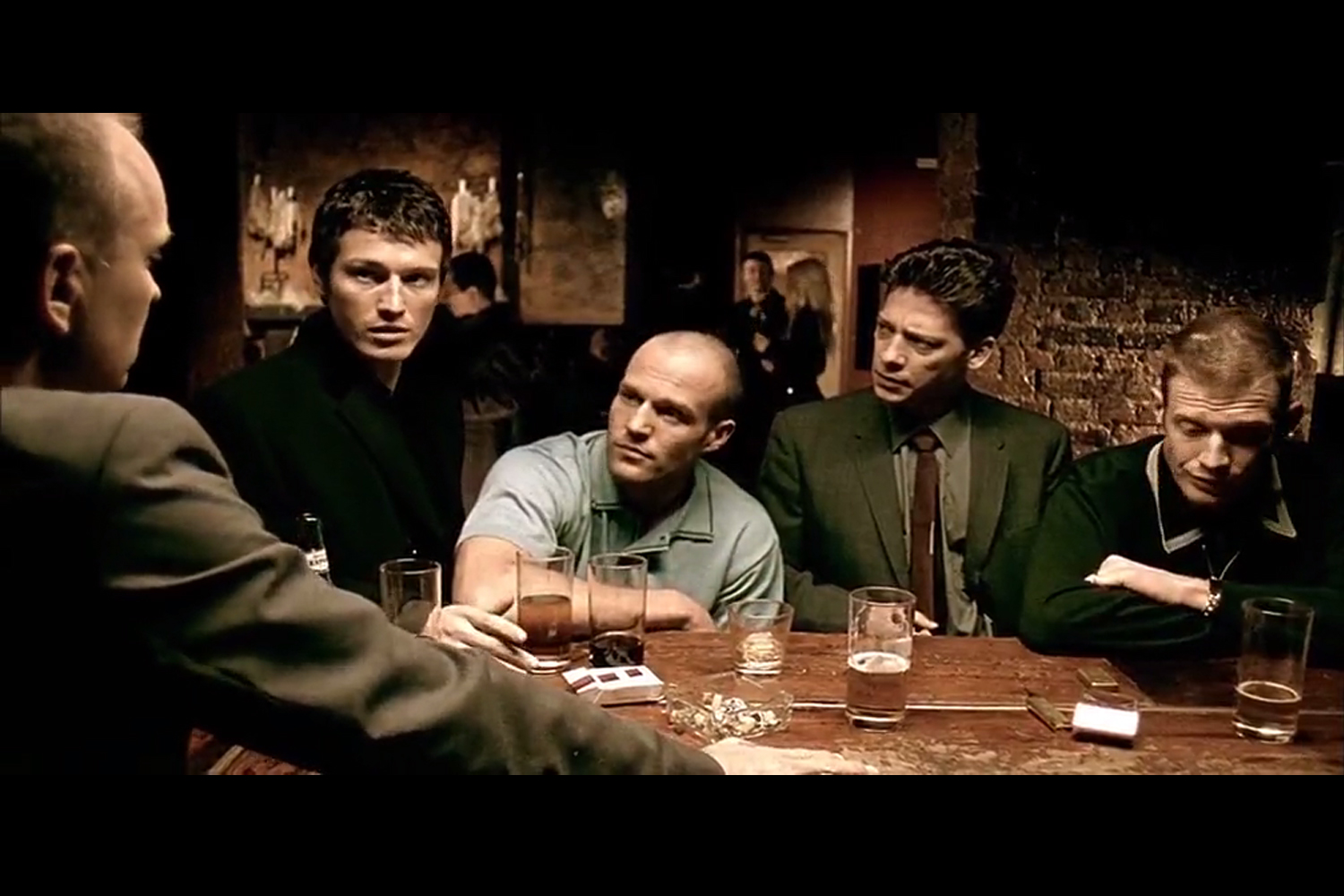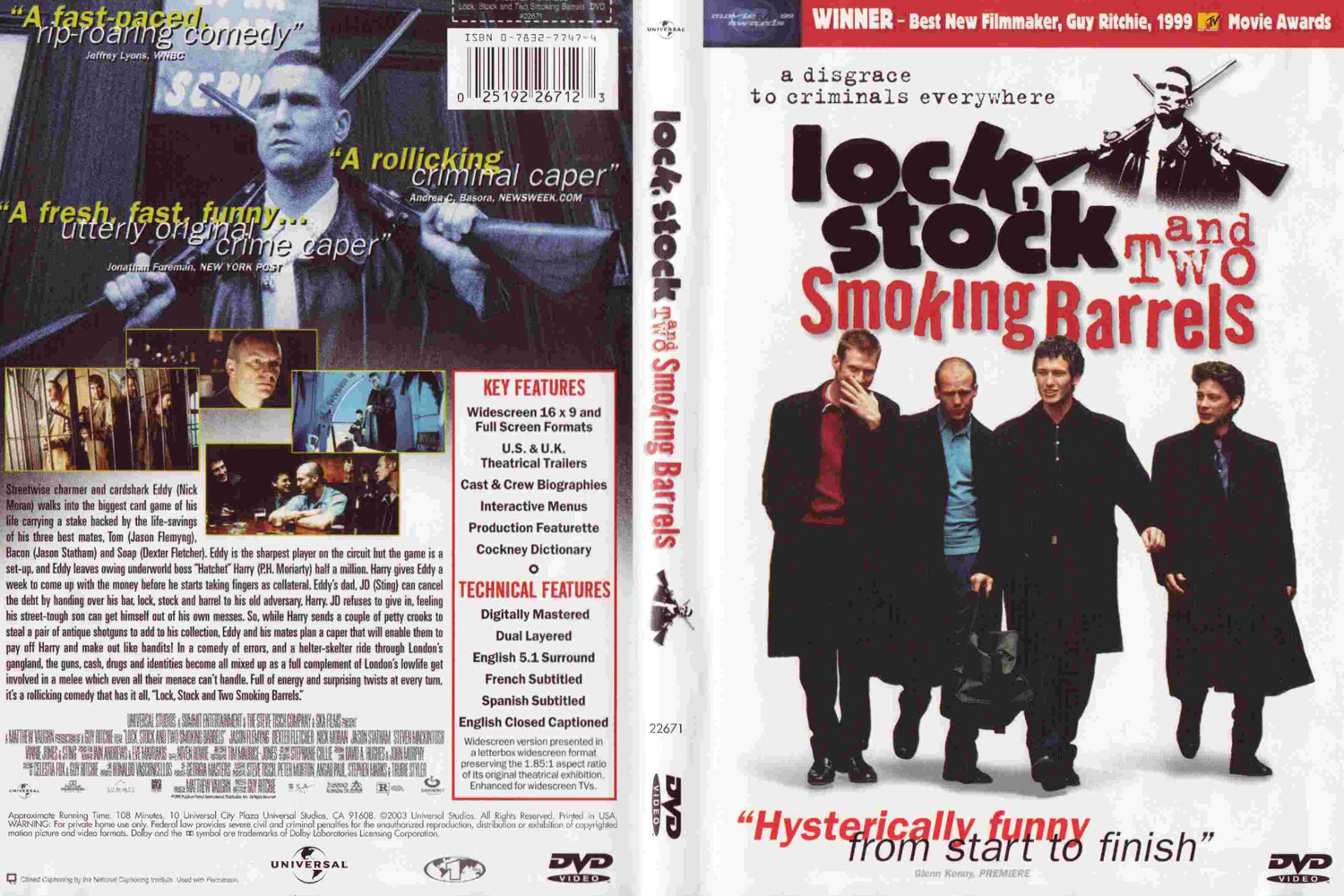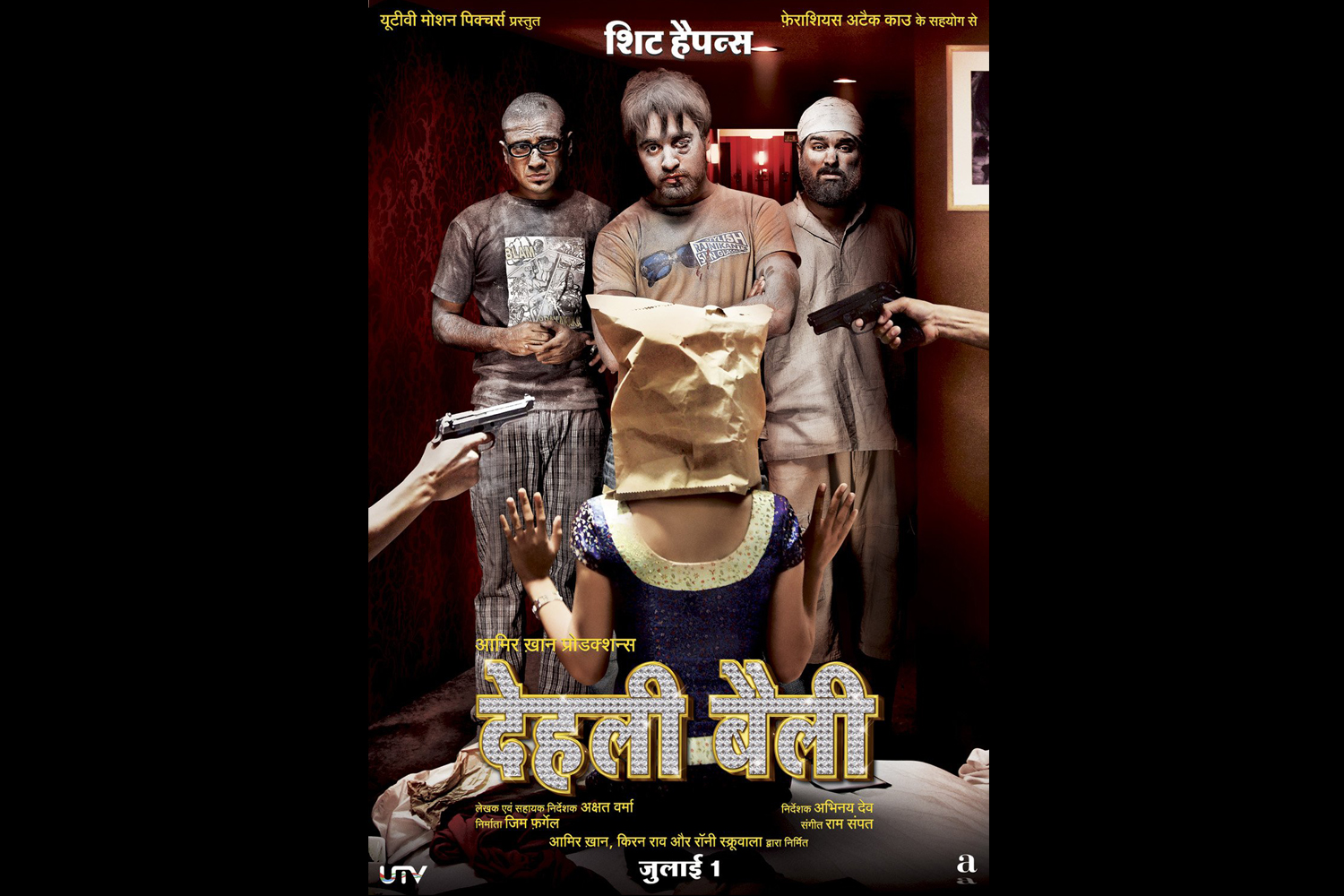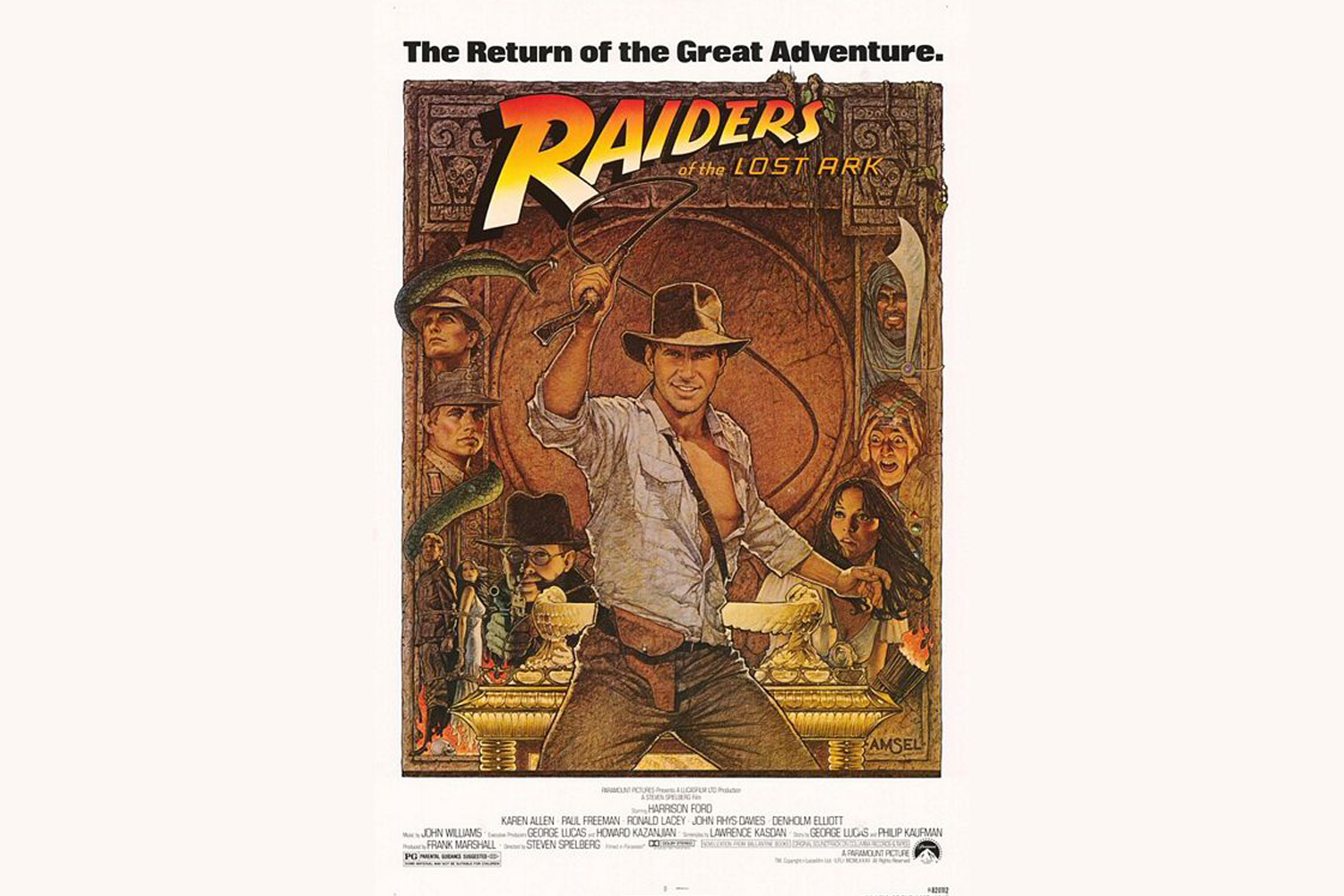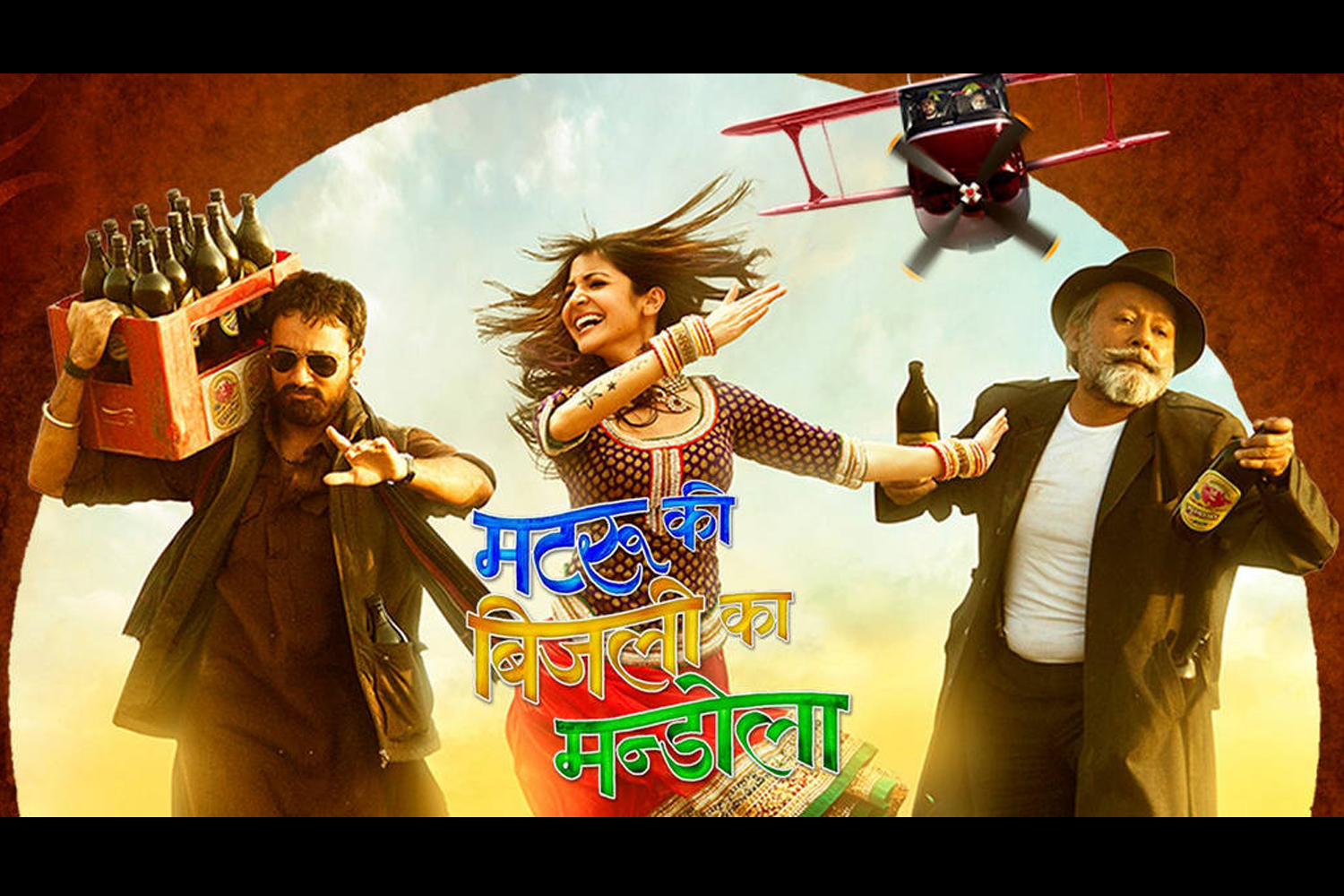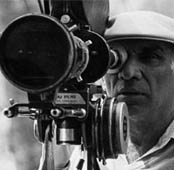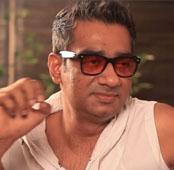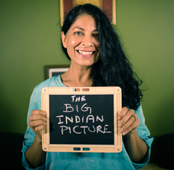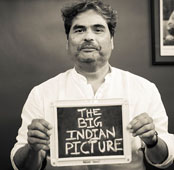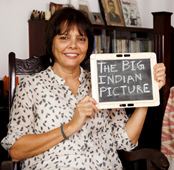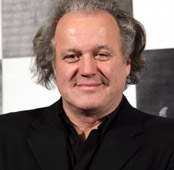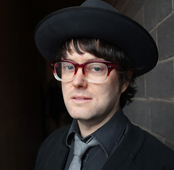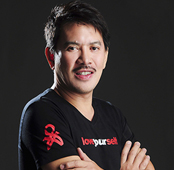-
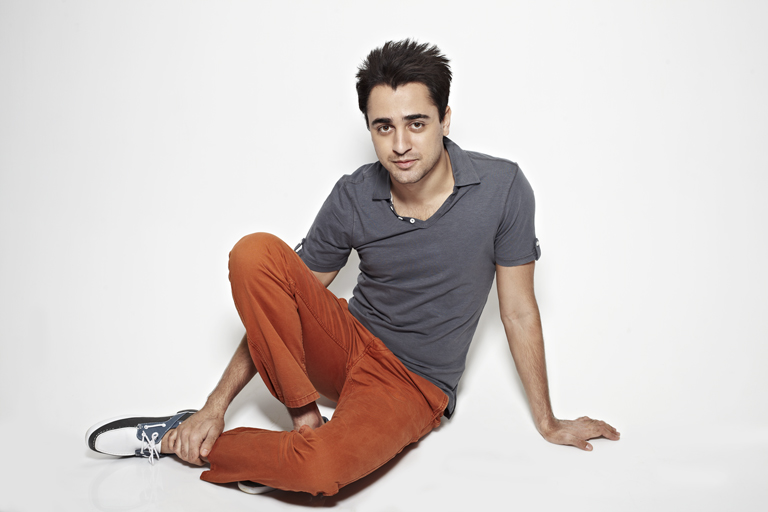 Imran Khan | Photo by Cyrus Dalal
Imran Khan | Photo by Cyrus Dalal -
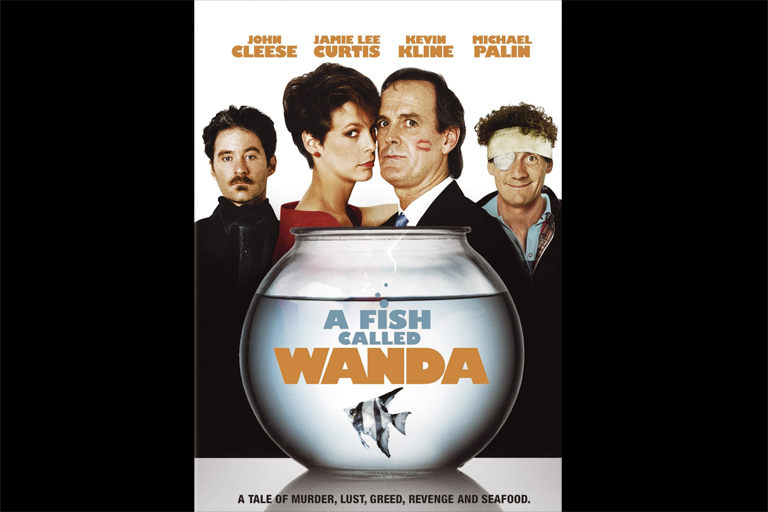 Theatrical Release Poster of A Fish Called Wanda
Theatrical Release Poster of A Fish Called Wanda -
 Publicity Material, A Fish Called Wanda
Publicity Material, A Fish Called Wanda -
 John Cleese in A Fish Called Wanda
John Cleese in A Fish Called Wanda -
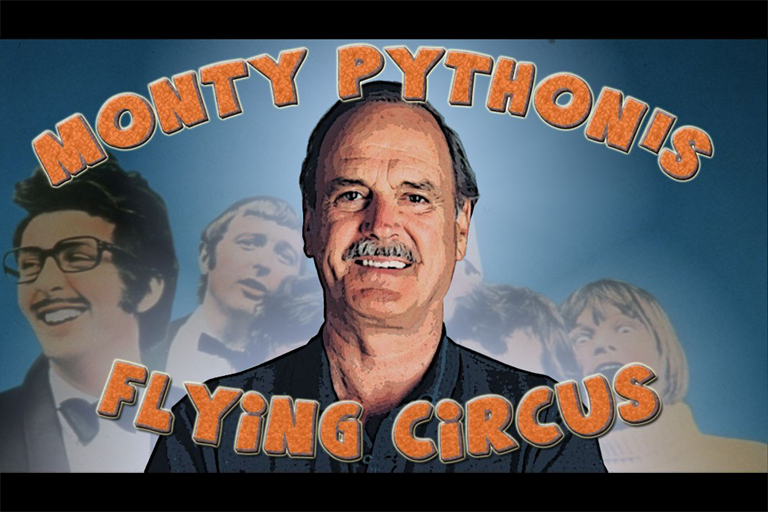 John Cleese in Monty Python's Flying Circus
John Cleese in Monty Python's Flying Circus -
 A Still from Lock, Stock and Two Smoking Barrels
A Still from Lock, Stock and Two Smoking Barrels -
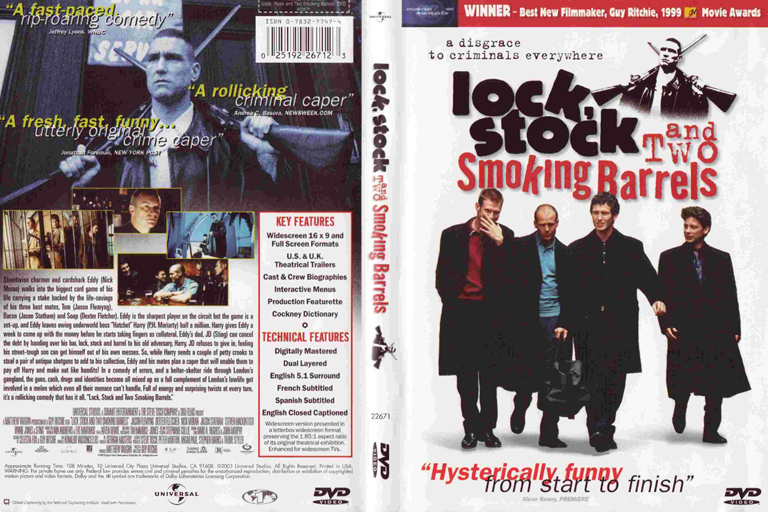 Rental Copy Cover of Lock, Stock and Two Smoking Barrels
Rental Copy Cover of Lock, Stock and Two Smoking Barrels -
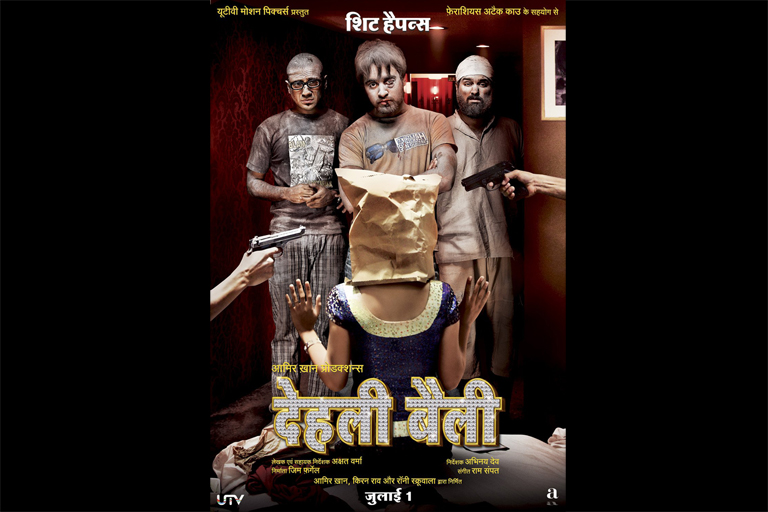 Theatrical Release Poster of Delhi Belly
Theatrical Release Poster of Delhi Belly -
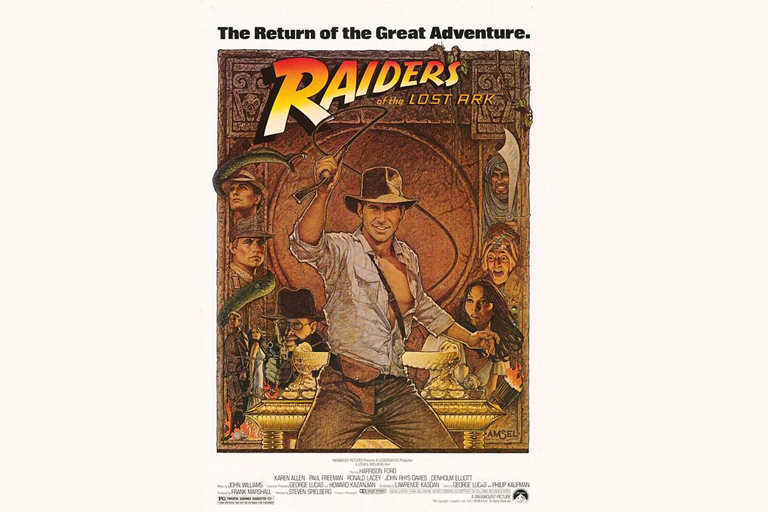 Theatrical Release Poster of Raiders of the Lost Ark
Theatrical Release Poster of Raiders of the Lost Ark -
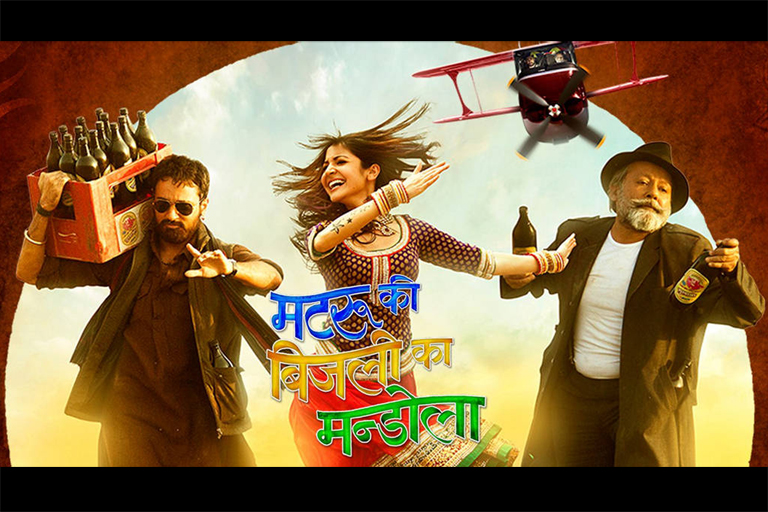 Publicity Material, Matru Ki Bijlee Ka Mandola
Publicity Material, Matru Ki Bijlee Ka Mandola -
 Imran Khan | Photo by Cyrus Dalal
Imran Khan | Photo by Cyrus Dalal
Actor Imran Khan has acted in 12 Hindi movies, nine of which he has played the protagonist in. The first film he appeared in was Qayamat Se Qayamat Tak. He was five then. He is 29 now. In this interview he talks about how he watches movies. He discusses the films he has watched that have left a mark on his life and his acting career. The movies he keeps going back to, and those that keep coming back to him. The two movies that he chose to talk about specifically were A Fish Called Wanda and Lock, Stock and Two Smoking Barrels.
How old were you when you saw A Fish Called Wanda?
I watched it when I was 13 or 14. My dad was a huge fan of Monty Python. As a result, I had an early introduction to Monty Python (a British surreal comedy group that did stage shows, TV and films) and anything else that John Cleese (star of Monty Python, who wrote and acted in A Fish Called Wanda) was doing. Fawlty Towers (also written and starred in by Cleese) and all of that.
So by the time I watched A Fish Called Wanda I had already seen Monty Python. So I knew the guys (John Cleese and Michael Palin). But over here I feel they just elevated their game. Because in Monty Python, while the stuff was all very entertaining, they were just short sketches. Here, they were sustaining that level of humour through an entire 90 to 100 minute film. And it was just one after the other. The hits keep coming. It was hilarious all the way through. And there are various styles of humour. You’ve got Kevin Kline going absolutely over the top. You have Cleese who’s doing dead pan, straight face, sarcastic. So subtle and underplayed— and yet he’s not losing ground. He’s holding his own. You’ve got Michael Palin in the middle doing what is literally farcical humour with his stutter and his repeated attempts to kill the old lady. So it’s different schools of comedy, different kinds of humour all coming together. Normally when you do a funny film, it will be a particular style. You have films that are gross-out comedies, something like American Pie. In that film everybody follows the same genre of humour, the same style of comedy. This is a film where everybody’s practicing a different style.
Obviously these are things you understand later in life as you start to watch more films. At a very young age you watch it and are amazed at how all these guys are so funny all the time. As you grow up, you appreciate the nuances.
Also, where Michael Palin and John Cleese are concerned, they were seen in far more restrained avatars in this film, as compared to their style in Monty Python…
Of course. This was a safer film. In (Monty) Pythonthey were always courting disaster, they were always on the edge. There was a film that was made a couple of years ago, a BBC film called Holy Flying Circus. In which they showed the controversy surrounding Life Of Brian (a film about a Jewish man, born next door to Jesus Christ, on the same day, and mistaken for the messiah. It drew allegations of blasphemy and was banned in some districts of the UK. It was written by Monty Python). So I think, in the early days, when these guys were young, they had that desire to really mess with people. That stuff was a lot more risqué. This stuff (A Fish Called Wanda) doesn’t go there, but it was very polished craft.
Did you watch it in the theatre… or?
I watched it at home. My dad showed it to me. I was at boarding school in South (India) then. I was, I think, visiting my dad, in Madison (Wisconsin, USA) on vacation. You know that moment when John Cleese and Jamie Lee Curtis are making out? And he tells her: “How can a girl like you who is like this, this and this (so fantastic… ) have a brother (played by Kevin Kline) who is so stupid”. And Kline pops into the frame and says: “Don’t call me stupid”.
laughter
That is such an unexpected moment. Because from the side of the frame he slides in, and says: “Don’t call me stupid”.
And I have this vivid memory. I was taking a sip of orange juice at the moment. I choked and sprayed the orange juice out of my nose. I fell down. And we had to pause the movie. Then there was a ten minute gap, when the movie was paused, and I had to go to the bathroom and get the orange juice out of my nose.
That scene stuck with me. The importance of comic timing, of how you deliver a line. That underlined it.
And also, the build-up. When John Cleese and Jamie Lee Curtis are discussing Kevin Kline’s character, and how he thinks Cleese’s character’s daughter is named Portia because they have a Porsche.
laughter
Ya. So it’s set up, set up. set up, set up— pay off. You know, very often, in India, what you witness is the clumsy way of doing humour. Humour is always about the set up and the pay off. You set up a situation, and people are expecting what will happen. And somewhere they know what the pay off will be. And normally you have a set up and a pay off. Then another set up and another pay off. Here, it is a set up through the film. Where you’ve established that this guy’s stupid. You’ve established that he doesn’t like to be called stupid. He thinks of himself as very intelligent. And that set up, all the way through the film, pays off at this point. Again, what you realize as you get older, and more mature, is how polished the craft is. These are guys who, between them, have decades of experience doing comedy of a very high quality. So they’re at the top of their game here.
I think, beyond the obvious humour the whole bit about Kevin Kline attacking that idea of how the British are…
Ya, that whole American v/s the British. It was great.
Lock, Stock And Two Smoking Barrels was released about a decade after this film, in 1998. When did you see it?
In (19)98 itself. Again, I watched it at home, in Mumbai, because then films like these didn’t really release in India. I was 15. My best friend Sahil (Shah) and I watched it. It was one of those times when we went down to the video store, looked through options, and pulled out this one, saying: okay this looks interesting. And we put it in, not really knowing what it was. And it just knocked us sideways. As soon as the film ended we put it in again and watched it again. Because Lock, Stock… broke so many rules in terms of how you make a film. In terms of the narrative, in terms of the technique. Again, these are things that you begin to understand later, when you grow older. At 15, all that you know is that you’ve never seen a film that looks like this, or a film that behaves like this. The way it plays out with the surprises, the twists, the jumping back and forth narrative. It’s like the MTV video style, the advertising style, which had not really come into films at that point. At that point you were still telling stories in a very clean straight forward narrative. You’d have maybe a twist at the end, or something. But in telling the story you wouldn’t jump back in time, you wouldn’t jump perspective.
It’s interesting that you saw the movie in 1998, when you could see it for what it was worth at that time. As opposed to many others who saw it later, when they’d already seen many movies that were of this style, technique, genre…
…and which borrowed from that. So people who saw Snatch first (a later film by the same director Guy Ritchie), which had Brad Pitt in it, that’s where they discovered that style. And they found Lock, Stock… amateurish. But for me, I watched Lock, Stock… when it was brand new. And it was a hell of a thing. Simple things like how you set stuff up. Early in the film the guys were stepping into a pub. And this guy comes flying out, all aflame. They turn and look at him, and then they walk in. There’s no explanation for it, until later in the film. And then it’s an aside, where a guy’s telling a story about another guy. And that’s where we know that this guy got pissed off with this man, he threw alcohol on him, and set him on fire. And that’s when we connected: Achcha! That’s who that guy was. It’s not really relevant to the story. You could have had a scene where a guy is telling someone else: Listen this guy’s a real badass. He once set a guy on fire. Now, not only has he told us the story, we’ve seen and experienced the story ourselves— when it happened early on in the film. So it’s doubly reinforced. Little things like this. Tricks which we use now, which weren’t the norm then. I was utterly blown because I didn’t know movies could do that. I didn’t know you were allowed to break the rules.
It’s interesting that both movies you’ve chosen to talk about have been called ‘heist movies’, though each in its own way breaks the ‘heist movie’ rules. Even in A Fish Called Wanda the ‘heist’ was just in the first ten minutes of the film. This broke the traditional format of the heist movie which says that part 1 will be planning the heist, part 2 the heist itself, and part 3 the aftermath… getting away, or not.
Yes, though A Fish Called Wanda just used the heist as set up. It was more a character driven thing as we approached the end. With Lock, Stock… it just goes all over the place. It’s heist after heist after twist after heist… it’s the story of these three guys on the one hand, then there’s the drug dealers and pot growers—who have their own story tracks going on—you’ve got Big Chris and Little Chris (debt collectors who are father and son), and their track— and all of these tracks intertwining, with every one having their own heist and their own endgame.
In fact, though the movie did well in the UK, you had a lot of critics, especially American critics, dissing it saying there’s too much going on to register. That you couldn’t just take the audience for granted. You couldn’t just put 20 characters there…
And so many movies owe a debt to it. Today, a film like The Hangover, a film like Delhi Belly, all of these films you can trace the lineage back to Lock, Stock… especially because all of these are ‘guys’ films. The concept of a bunch of guys who get into shenanigans…
And a crazy bunch of situations that keep coming up one after the other…
Yes. And when I started working in films my fondest desire was to do something like Lock, Stock… and I knew there was never a chance I would get to do that because I work in Indian films. Then suddenly Delhi Belly came along and I read the script and said: Wow this is too good to be true. And I thought: This is a great idea, but I’m sure we’ll never pull it off. And we pulled it off, and the film turned out to be something I was very proud of. So for me, very early on, I got to live out a lifetime fantasy— the idea of doing a film with that kind of humour, that kind of camaraderie between the guys…
But why did you think that there wasn’t a chance you would be able to do something like that, because when you came in, with Jaane Tu… Ya Jaane Na, a lot of exciting films were happening. There were directors like Vishal Bhardwaj, Dibakar Banerjee…
You know the thing is the humour in Lock, Stock… is so smooth… it’s Brit humour and, honestly, a lot of the jokes in Delhi Belly are, again, the kind of humour which is underplayed. One of my favorite scenes, it’s a scene I had to do during my screen test, is one where three of us go to interview this girl, this DJ. And she’s talking about her song I Hate You Like I Love You, and I have very few lines in that scene. It’s all reaction based. And that’s not what we normally do in India. In India the thought is: Hero ka dialogue kahaan hai?
That you’ll be delivering the punchline…
And while delivering the punchline I have to stand up, and put my hands on my hips and wink into the camera. And here it went exactly the opposite way, where the lines are all hers and the only way to make someone laugh is through my reaction. I never thought I’d get the chance to do something this subtle. There’s a joke in the scene—I don’t know how many people got that—where she says: “I’m working on my own clothes line”. And I say: “What? You mean clothing line?” And she says: “Never mind.”
Have these films aged well for you? Now that you’ve seen so many other films, can you go back to them? Are they a place of comfort? Have you discovered more layers?
A Fish Called Wanda remains one of the three or four funniest films I’ve seen in my entire life. It still makes me wet my pants every time I watch it. So I don’t think it has aged in a way as to make it less funny. Which has happened with somethings— a lot of Mel Brook’s stuff. I loved Space Balls when I was younger. But when I re-watch it now it’s not quite as funny as it used to be.
Lock, Stock… to be honest it’s been four-five years since I last watched it, but I know every line of dialogue. If I’m pushed to it I’m pretty sure I can write out the screenplay from beginning to end. That is how many times I’ve watched it. So to me it’s still perfect.
You’re from a film family, and you acted in Qayamat Se Qayamat Tak when you were five, and Jo Jeeta Wohi Sikander when you were nine. Were you conscious of how a film might have been made, what went into it, when you watched it? When did you begin to be conscious of this?
I think it was shortly after I watched Lock, Stock… Because it broke the rules so shamelessly, it made me really sit up and take notice. Because I was like if guys can do this, then what else have I been missing out on? What else can be done? How many other ways can one do something?
That’s when I started paying more active attention to how things are put together. For most people back then movies were about the hero, the heroine, and that was it. If you had a supporting funny actor—a fat guy who makes you laugh—all the better. But it was then that I said, wait, Lock, Stock… is shot differently from anything I know. Now I had no idea back then that the film was shot on a different format… all I knew was that it looked different. It went into slow motion, went into fast-forward, the action would freeze but the camera would move around. So I started asking how that was possible. Questions started popping up.
To this day I don’t remember most of the actor’s names, though I came to know years after I saw the film that Jason Statham, who’s a big action star now, had started off there. But to me Lock, Stock… was about Guy Ritchie (the director).
Did you know anything about either film—A Fish Called Wanda or Lock, Stock…—before you saw them?
Lock, Stock… I have a strange recollection of seeing ads of it on Star TV, which I think was the only English channel then. That, and the fact that it had a cool title, was what prompted us to pick it up. With A Fish Called Wanda, Dad had told me that: These are the guys, he said, you know John Cleese. I’d seen him in Monty Python and Fawlty Towers, so… for me it was just that they’d done something else. There’s a film they made—the same cast—about ten years later, called Fierce Creatures. I remember thoroughly enjoying it when I watched it in the hall. Though I didn’t see it after…
Also the director of Fierce Creatures was different. Charles Crichton had passed away by then. In fact, interestingly, Crichton had made a more conventional heist film called The Lavender Hill Mob as far back in 1951, which is counted as one of the really big heist films.
Okay.
Have the characters of A Fish Called Wanda stayed with you? Has your relationship with them evolved?
I went in knowing only John Cleese. But that was the film in which I discovered Kevin Kline. It was spectacular, how he pulled off those gags… the times when he nearly bangs into someone’s car and screams “Asshole”. The time when he was trying to convince John Cleese’s wife he worked for the CIA— moments of utter insanity, when he’s shamelessly bluffing his way through. Or when you watch him doing something which is like pantomime and you’re like: How is he actually doing this? It’s a moment you really cherish, when you watch someone doing something you didn’t realize was possible. You get that moment in films, sometimes you get it in sports.
What about the characters of Lock, Stock… which you watched when you were a teenager?
That level of witty dialogue, where… For most people, if you wanted to insult someone, it would stop at: “You’re an idiot. Fuck you.” But the idea of those witty, lengthy insults… and when you’re that young, that impressionable, that comes to define your idea of cool. You want to be the kind of person who insults people like that, with dripping sarcasm and biting wit. It comes to define your sense of humour, shapes your personality.
If you were to introduce your kids to these films how would you do that?
Ideally as little as possible. The films that have been most important to me, for instance, all of the Dark Knight films, or anything that Nolan does, I don’t watch anything other than the first two minute trailer that comes out. Particularly for Inception I remember watching nothing. Not the TV spots, making-of, interviews— nothing. I believe, with very good films, that can be influential, you should come to them as clean as possible.
If I had to say something, I’d say for A Fish Called Wanda that it was the funniest film I have ever seen. Lock, Stock… I would say it shifted my notion of how things can be done, where you spend your entire life thinking there’s only one way of doing things, and someone comes and shows you there’s another way.
What’s your earliest memory of watching a movie?
Indiana Jones and the Raiders Of The Lost Ark in Ooty, while we were shooting for Jo Jeeta… I watched it in the hotel over there. I must have been about eight.
How did those roles for Jo Jeeta… or QSQT come about? Because you were family to those making those films, or looked like a younger Aamir Khan (younger versions of whom he played)?
A bit of both. I was available. I would work for free. And I looked like Aamir. For me it was more about getting away from school.
Did being in those films, or being a part of a film family, alter how you received the movies?
I had a better understanding of it than some of my friends, certainly. But it didn’t alter my enjoyment of it, which is something I am very grateful for. This is something that is also true for Mansoor (Khan— a film director and producer who is also his uncle), with Aamir and for people whom I really respect as actors or directors, like Adi (Aditya) Chopra. I can’t resist clapping when something great happens. I cheer. I laugh. For me that feeling of being swept away is invaluable. A lot of people in the business are very jaded. All they’re looking at is bad chroma or the state of compositing, or continuity jerks. And it’s tragic. I feel terrible for those people.
But now that you’re in the business yourself, don’t those distractions come in?
I cannot watch my own films, because I see all the flaws and the problems. But when I’m watching a film, I invest completely. And I’m a lot more forgiving than most people are. Friends of mine, who are not industry people, often criticize a film and I find myself defending it saying I cried at a particular moment, or found a character very funny. Because if you lose that sense of wonderment for what a film can do, somewhere you’re going to lose your way. Chris Nolan still does it for me, for instance. When I’m watching Inception, when I’m watching (The) Dark Knight I start to feel like… Have you ever seen film reels of audiences in the old days? When they saw a train coming towards them they would scream and panic. Because they couldn’t separate that reality from their own. And there are still filmmakers who make me feel like that. Chris Nolan does. Peter Jackson (director of the Lord Of The Rings films) does. When I’m watching Lord Of the Rings, and I’m watching hordes of Orcs coming up the hill, my palms start to sweat. I begin to wonder if these guys will make it out alive. That is what you have to hold on to. To have the ability to create that as a film person, as an audience you have to be able to experience that.
Who influenced your film watching when you were a kid?
I think any of the funny stuff I have ever seen in my life was introduced to me by my dad. And all of the—for the lack of better words—’off-beat’, ‘indie’ stuff I discovered along with my friend Sahil, who’s been friends since I was a kid, for the last twenty years. He and I were avid movie partners. We’d go to the video store together and pick up stuff, come back and watch them back to back. I discovered Lock, Stock… with him. We discovered Kevin Smith together. The first film of Kevin Smith that we watched was Clerks. He shot it in black and white for practical purposes, because he was shooting night for day, and he had an issue with colour temperatures, so he felt this way nobody would be able to tell the difference. But because it’s black and white and gritty and grainy, when you watch it you feel like it’s something that nobody else has discovered. You always feel that you’re the first person who has seen it.
What drew you to the ‘off-beat’, ‘indie’ stuff, as you call it, in your teens?
We (Sahil and him) started watching movies at a very young age, so by the time we were 14-15 we had seen a lot more films than other people. So while other people would rely on big releases and go for family outings, we used to seek out films, at theatres, at video stores. Our sense of cinema had already been honed a bit, so we would look at something, read the back of the cover and say, “That sounds like an interesting story”, whoever the stars were.
You didn’t have access to the internet then to look for names or descriptions of movies?
No, we didn’t. So it was literally you pick out a movie, look at the photo on the front cover, and read the description on the back. We discovered novels in the same way.
I’ve always believed there’s something really special about being in a tangible space where you can hold your movie before you rent it, as opposed to ordering it online, or on the phone.
Ya. I have strong memories of going to the video store at Bandra. There was one guy down the hill (Pali Hill). At that time laser discs were the thing. Racks and racks of them. So you see what’s there, ask him what else he has, then look through the back-shelves to find the movies that no one wants to see. It’s like being in a library of books.
Are you moody about what films you watch when?
Strangely, in the past couple of years I have much less time for movie watching than I would like. I find myself working a lot. There’s always high stress, high drama. So I find myself steering away from films that are downers. My tastes have become a little more romanticized. I want a happy ending. And I want a film that will make me feel good at the end of it. So, where, earlier on I would search out Requiem For A Dream, today I would never watch it. When I was 17, 18, 19, 20—that’s the point when you’re in maximum rebellion mode—so I was like: This is the way! Moody! Gritty! Dark! Today I don’t have it in me to sit down and re-watch that film. I watched Black Swan. It’s spectacular filmmaking, but I wish i hadn’t watched it. I would have been happier in life if I hadn’t.
How long does it take you disconnect from a film like that?
Whether a film is really really depressing, or really really enjoyable, basically if it’s a film that has moved me, the hangover lasts for a couple of days. I keep flashing back to moments in the film.
What’s been your give and take between your movie watching, and your life as an actor? When you’re working on a role, do you avoid certain movies because they may leave you with baggage? Or are there any go-to films for you, that motivate you, or serve as universal reference points?
Films always motivate me. If I watch a film I really like, or an actor I really admire, it works as fire under your ass. Like: Shit. I have to work hard. I’ve got to get better. But I tailor my music based on the films I’m doing. The music that I listen to helps me build character, so I tweak that and build playlists accordingly. But films— absolutely anything, because somehow I’m able to separate it. I know a lot of people who get shut down. Who don’t watch good films when they’re working on a film. You’ll be surprised how many filmmakers do that.
I was asking also in the case of there being a film that’s in the same genre as the one that you’re working on. Because you want to shut out any outside influence that might tamper with your own process.
There’s a thing, that I call a creative reservoir. If you’re in a creative field—as actor, director, writer, painter—whatever it is you’re putting out there, you’re drawing upon something inside of you. You call upon that reserve and put it into your work. But that drains it, so you have to fill it up. The only way of doing this is by consuming more, reading, listening to music, watching films, traveling, having experiences, meeting and talking to people. I’m always wary of running out of this reserve. So any chance I get to ingest information or content, I take it.
Does watching films ever become a drag because it reminds you of your workplace? Or do you manage to switch off always?
No. Films for me are a complete escape. I get transported, sucked into another world. I’m out there shouting: Run Spiderman run!
Do you watch movies alone mostly or with people?
Largely with Avantika (Malik, his wife), because she’s as much of a movie nut as I am, but otherwise I don’t mind watching it alone. Because I have very stringent requirements for watching a movie. I have to have the right seat, at the centre. My phone goes off. If you’re watching a movie with too many people, somebody has to get up to go to the loo, somebody has to get chips. I can’t handle that. Avantika’s as serious about her movie watching as I am, so both of us sit down and put our phones off before the movie begins. Or I watch it alone.
Who do you discuss movies with mostly?
Avantika, because I end up watching most movies with her. Otherwise I have a gang of five or six friends who are as serious about movie watching as I am. So we’ll go and watch a film and there’ll be lengthy discussions about the movie. Ultimately, when you get to discussing it, that’s when the technical sides come in— people are talking about the VFX, how it’s shot. At that point you switch back on. But that doesn’t take away from my enjoyment of the film. Like, I just watched Skyfall. None of my friends liked it. I did. And while I could step out and see, objectively, what the flaws were, and what their issues with it were, it doesn’t take away from my enjoyment of it.
Are there any critics you follow, in India or abroad?
I read film journalists when they do interviews with filmmakers about their process. The concept of critiquing a film has never really made sense to me. You have a person who’s speaking in a void, who’s probably never been on a set, and it’s one person’s objective opinion. And it raises the question: Why should I read your opinion over someone else’s? I find it interesting to read interviews with directors, writers, to find out what they did and how they did it.
Has there been any film writing that particularly stayed with you?
Truffaut’s book on Hitchcock (HITCHCOCK TRUFFAUT A Definitive Study of Alfred Hitchcock by Francois Truffaut). I never liked Truffaut, always thought he was an ass. But I always liked Hitchcock. A lot of these greats, you don’t actually get to hear what they’re thinking, because there wasn’t as much film journalism at that point. So it’s Hitchcock speaking about his work, and it’s great to hear his voice. It coloured my taste in what to look for in terms of film journalism. So fine, it’s interesting to read a long form piece. Whereas, if you have a synopsis, or a critique of a film, it’s normally going to be a single page column. But when you actually get a thousand plus words to dedicate to a film, or an actor’s performance, or a director’s work, that is when you begin to see how they put it together, what they were trying to do.
What is a film you remember particularly for it’s use of music?
Anything Nolan does. I mean, you have theme songs, like in Star Wars or Indiana Jones, which tell you that the good guy’s coming and the bad guy’s in trouble. But the first time that I was strongly aware of the music was in The Dark Knight, with how the music changes when the Joker comes in, or when Harvey Dent is on his way to his downfall, all these elements. That’s the first time I sat up and noticed how the music was adding to everything, creating a very ominous, eerie, uncomfortable feeling. This is something I realized quite late in life. For a large part, scoring and background music were quite invisible to me.
What’s a film you remember for the level of detail?
I’ve always been a big Michael Mann fan. Of course, he’s gone a bit crazy in the recent years, but if you go back to the earlier movies—Heat and right up to Collateral, I think—he was solid. He was very good at creating tension and drama in a confined space. So in Heat you have (Al) Pacino and (Robert) De Niro sitting across a table in a diner. Or in Collateral you have (Tom) Cruise and Jamie Foxx sitting inside a cab. So you have these spaces where you don’t get to play with anything. The conventional logic will tell you that in this kind of an environment the director is redundant and now it’s the actor’s job to carry the scene. But that’s not the case. There’s a very strong director’s mark. You can see the director’s hand guiding you, saying: This is what I want you to look at right now, this is what I want you to feel right now.
It’s interesting that you say that, because I’ve always seen the scene with Pacino and De Niro in Heat as an actors’ scene.
It really isn’t. People tend to think of it as an actors’ scene. Or think of film as an actor’s medium. But I’m a big believer in the director. As an audience I want to see the director’s hand. I want to see the director guiding me through the film. That’s why I hate 3D. 3D takes away focus, which is a very important tool for the director or the director of photography to guide me, whether as a viewer, or as an actor.
Did you see Heat after you started studying cinema, in New York, or after you started working in the industry?
No, before that. When it was just a cool action flick with Val Kilmer, Al Pacino and Robert De Niro. But I revisited it later because I was a huge Mann fan. To go back to what I was saying, imagine a director who has both De Niro and Pacino in his film. Now imagine the temptation to run wild with that scene. Or to run wild with that film. If I had Aamir Khan and Salman Khan in my film I would keep both of them on camera, all the time, have them dancing or kicking ass. But here, Mann has used restraint. He’s said: I know what you’re expecting of me, but I’m not going to give you that. He’s set a scene in such a drab mundane location—it’s a diner—he doesn’t even give you the cool shots where he’s panning the camera from here to there— nothing. He’s shooting OS to OS (over-the-shoulder to over-the-shoulder, or cutting between face close-ups). It takes guts, and enough confidence in your craft, to say I’m going to let this scene breathe. Many people over direct. I’ve worked with directors who have literally laid a scene out for me and said: Walk from here to here while saying this line. At this word stop here. Turn your face this much to the left because I don’t want to see both eyes. I only want to see one eye. And then say the line. Take a pause here.
What’s a film you remember for its climax?
I ended up watching Saw, the first in the series, when I was in LA in 2004because it had turned into this big success story over there. These two guys who had just a little bit of money—one guy wanted to be an actor, another guy wanted to be a director—so they got together and said: Come on let’s make a film. They wrote it themselves, they dug up money from somewhere, and shot it largely in one location. I don’t want to spoil it for you. The film has a twist climax, which actually had me cheering and clapping, even though I was sitting alone in my living room. The film was much better than what it had the right to be. It’s torture porn, a slasher flick. But, it had higher aspirations, and for that moment they pulled it off. It wasn’t great filmmaking, and it may not go down in the annals of cinema, but at a very basic human organic level, the climax came, and I clapped.
What’s a film you remember for its characterization?
I don’t know whom to give the credit for this to, but Collateral was the first and possibly the last time when Tom Cruise was not playing Tom Cruise. He plays Tom Cruise in every single film. He’s got that million dollar smile and that twinkle in his eye. It’s Tom Cruise all the way, from Jerry Maguire to Mission Impossible. In Collateral it was not. His character’s name was Vincent, and that is not him. I don’t know who the credit goes to, but it’s a hell of a task to take, arguably, the biggest leading star in the world, and make him forget who he is.
That aside, Billy Crudup is a damn good actor—though he’s almost never the leading man. I always only realize halfway through the film that it’s him. That’s a massive compliment for an actor.
Is there a genre of film that you’re prejudiced against watching?
You have these extremely weepy women-centric melodramatic things where the woman has cancer and is dealing with children and the parents… those films I stay away from. Generically they’re called ‘Lifetime’ movies, because you have this channel in the US called Lifetime. Their tagline is: Television for Women. They’re just over-wrought. Every performance is drenched in glycerine. And every frame is soft-focus.
Is there a genre you watch more of?
Heist films I like a lot, but with a dose of comedy. If you can pull off a little bit of tension and drama and suspense with humour. Like Ocean’s 11 did, like Ocean’s 12 fails to do.
Have you ever liked a film no one did, which you had to defend?
There’s a Bruce Willis film from the early 1990s called Hudson Hawk. It was an epic flop and heavily panned by everyone. But I think it was laugh-out-loud hilarious. I haven’t watched it in a few years, but I watched it five-six times at least. And I could not, for the life of me, understand why the film failed.
A director you’re the biggest fan boy for?
Right now it’s Nolan. Guy Ritchie was the first director I was a fan of. But in recent years it’s started to decline because I’ve found his work to have become very repetitive. Michael Mann was going up, up, up, up and then boom. And then he did Miami Vice which was pretty bad. So they’re inconsistent. The most important thing to look for in a creative person is consistency. I’ve seen everything Nolan has done. I watched Memento in an art-house theatre, in the US, while I was in school there. There was a lot of buzz in school about this ‘backwards film’. I remember checking out the website. There was a viral marketing website called www.otnemem.com, which was Memento spelt backwards. I remember finding one art house theatre showing it, and convincing my dad to take me. That was when Nolan was discovered. And every film of his since, I’ve seen in the hall. Then he followed Memento up with Insomnia, which was better. Then Batman Begins, Prestige, The Dark Knight… with every film it just got better.
Which film of your own have you learnt the most from?
Matru… (Matru Ki Bijlee Ka Mandola). Which is yet to come out. Because in my career thus far, I’ve worked largely with first time directors, who’ve been my age and had as much, or less, experience than me. So it’s always been just us, holding each other’s hand, stumbling through the dark, finding our way. So you don’t get the full benefit which a seasoned director has to offer. Working with Vishal (Bhardwaj) was the first time where I had someone who has made so many films, worked with so many actors, and who has a very solid grasp on the craft. So I realized this is what I’ve been missing. There’s been tremendous growth, and tremendous learning.
Movies & Me: Imran Khan
InterviewNovember 2012
 By Rishi Majumder
By Rishi Majumder
Rishi Majumder is Senior Editor at The Big Indian Picture



